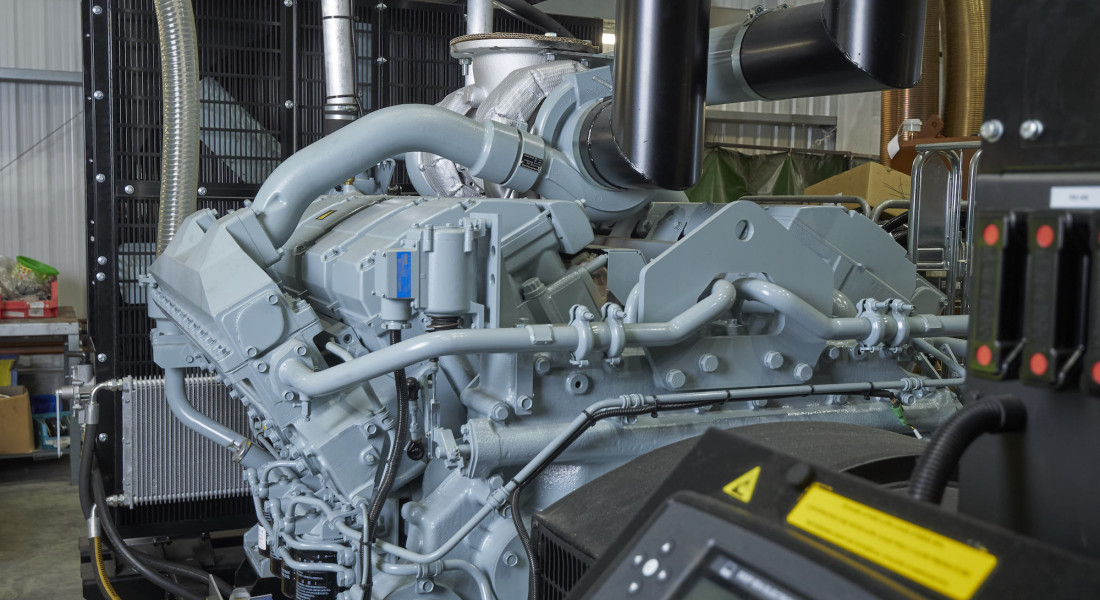Blog

The world of power supply, generation and protection can be confusing – especially for those not in the industry. Here at Dale, we understand how frustrating and confusing it can be to get your head around certain things – such as the precise difference between a UPS system and generators themselves. That’s why we’ve created this quick guide to help add a bit more clarity to the picture for those looking to invest in protected power supply.
Our team works with clients across manufacturing, healthcare, finance and government and more in order to protect their computer systems, critical power equipment and power supply. Businesses need to protect themselves from power blackouts, whether they are caused by a system failure, extreme weather or anything else. The fact is that an incident like this is more than just an inconvenience – it puts your data, computers and equipment at a huge risk of damage and failure.
There are two main ways in which we have helped clients across a broad range of industries with protecting their power: UPS systems and generators. Both provide an excellent option for backup power supply, but we often find ourselves talking to clients who are a little confused as to the precise difference.
Each has their benefits and drawbacks, and each works in similar but slightly different ways. With this in mind, let’s take a look at the main differences between UPS systems and generators.
Before you can really appreciate the difference between these two great options for power protection from a power outage, it’s important to understand exactly what each of them can do and how they function.
Simply put, a generator is a machine that converts mechanical energy into electrical power in order to power your business. The electricity that generators produce is used for a wide range of different uses, such as mains power supply, AC mains (alternating current) power supply, and more.
The source of the mechanical energy (motive power) can include things such as renewable sources such as hydropower and wind turbines. Here at Dale, we work in sustainable and renewable power sources every day – but we also provide diesel generators too. A diesel generator uses both a diesel engine and an electric generator in order to generate power.
Compared to other types of generators, the key differences for diesel generators is that they are compression-ignition engines that can use a number of different fuel types to operate. This makes them quite a flexible option and can suit your business location and configuration, running on natural gas or other liquid fuels if need be.
Diesel generators work independently and can therefore function without being connected to a power grid. This makes them an excellent option for emergency power supply in the event of a grid power failure. They can also provide backup and standby power feeding utility grids for those peak or emergency periods.
The commonly used name for the combination of a diesel engine, generator and other additional devices is a ‘diesel generator set’ – often shortened to just ‘genset’. Other ancillary devices that might be part of a genset include control systems, jacket water heaters and circuit breakers.
UPS is the commonly used name for uninterruptible power supply. This is a piece of equipment that provides your business and site with backup power in the short term when your mains power supply fails. Sometimes known as a battery backup, a UPS system is there to provide exactly what it says – uninterrupted power supply in the event of a power failure or voltage dropping to an unacceptable level. Uninterruptible power systems ensure that your devices remain protected in the event of a blackout – ensuring that they stay up and running despite a mains failure.
Uninterruptible power supply backup is most commonly found in IT, where data loss is a huge concern. But the fact is that uninterruptible power supply systems are applicable across all sectors because they protect and secure computers and other electronic devices with the power they need to survive a loss of mains power supply. A UPS system means that all important equipment is delivered a sufficient amount of backup power to be able to save important data and shut down safely in the event of an outage.
Unlike generators, uninterruptible power supplies are always delivered as a strictly short term standby power solution. UPS systems are designed to provide short term battery backup that lasts generally between 10 to 15 minutes as a maximum. It’s worth noting that much longer term options are available, but this is a key feature of most UPS systems.
As you can already tell, both generators and UPS systems provide backup to your primary power source. They help to protect your devices and electronics from damage and data loss in the event of a power outage. Let’s take a look at some of the most important ways in which the two solutions differ:
UPS is an almost instant battery backup that prevents your devices and power from being interrupted, while generators have a longer start up time.
Generators provide a much longer lasting backup power supply and can sustain your business for much longer than a UPS.
UPS systems power on automatically in the event of an outage, whereas generators need to be manually turned on.
The power supply for a UPS comes from AC mains, whereas generators convert mechanical energy into its own power.
UPS systems produce zero carbon emissions making them more environmentally friendly. Generators most often run on diesel, natural gas or other liquid fuels.
UPS systems are entirely noiseless, while generators can be very noisy. There are however soundproof versions and upgrades available.
UPS also requires no maintenance, while generators will always require some maintenance.
UPS are a cheaper alternative to generators.